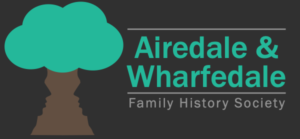Subject: DNA for Family Historians
Speaker: Carolyn Huston
The Wharfedale Family History Group met at the Salem Church Hall on Thursday 1 February. Chairman Lynda Balmforth opened the meeting and introduced speaker Carolyn Huston, whose illustrated talk was on the subject of DNA for Family Historians.
Carolyn introduced the basic science of DNA, explaining how it is present in every human cell and how certain elements of DNA are shared with every living thing including plants, fish and birds. There is a growing interest in DNA analysis for family historians as it can be used to trace ancestral origins and ethnicity, link into one name studies, and extend family tree research. There are two main elements of DNA connected to family history: Mitochondrial DNA which traces the female ancestral line and Autosomal DNA which can be used to trace the male ancestral line. All individuals, with the exception of identical twins, carry a unique DNA pattern yet matching elements can be used to link people together (the closer the link, the closer the relationship). DNA analysis has helped illustrate the original migration of all humans from the African continent some 60000 years ago. Closer in time, it is also possible to produce a pattern of DNA ancestry relating to individual counties in the UK; for example it may show that 50% of your near ancestors (say four generations) came from Yorkshire. The further back your family goes, the smaller the percentage of shared DNA, yet it is possible to match a person to other living relatives who share a common ancestor provided their DNA is available on the same database. Haplogroups are genetic population groups of people who share a common ancestor on the female or male line.
Whilst it may be intriguing for family historians to undertake a DNA analysis it might provide much less information than you hope for as only relatively small numbers of the population are on the databases and at present there is little shared information between the companies analysing the information. It may come as a shock to discover unexpected roots or perhaps unexpected relatives. On the other hand it could possibly help break down a brick wall in your family history research. A number of different companies offer DNA testing for family history purposes and books by Professor Bryan Sykes provide useful further background information regarding DNA.
Lynda gave a vote of thanks following questions and comments from the audience. The Group’s next meeting will take place 7.30 pm on Thursday 1st March at the Salem Church Hall, Main Street, Burley when Norman Simpson will present his talk, The History of Chocolate in York. Members and non-members all welcome, refreshments provided.
